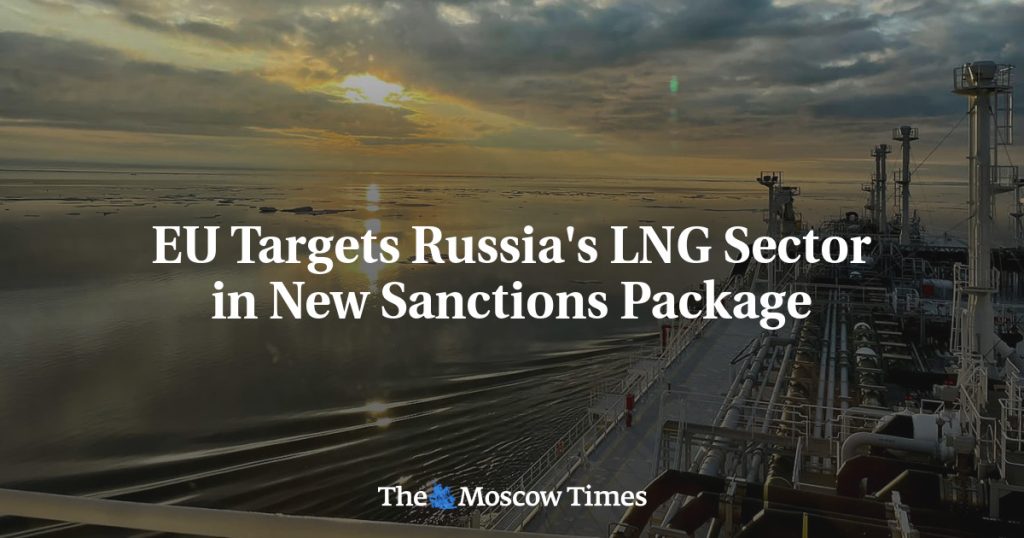EU member states have agreed to impose a new round of sanctions against Russia targeting its LNG sector in an effort to impact President Vladimir Putin’s military operations. The sanctions aim to restrict Russia’s access to key technologies and cut off energy revenues. The package of measures includes a ban on the transshipment of Russian LNG through Europe but does not prohibit EU countries from purchasing Russian LNG. The EU is also taking steps to crack down on Russia’s use of a “shadow fleet” to evade sanctions and sanction Moscow’s SPFS bank messaging system.
European ports play a significant role in Russia’s LNG exports to Asian markets, particularly in the winter when Arctic ports are frozen. Ports in Belgium, France, The Netherlands, and Spain serve as key points for deliveries from Russia’s Yamal Peninsula, with ports like Zeebrugge and Montoir facilitating re-exports to countries like China, Taiwan, and Turkey. The EU’s sanctions package also includes measures to prevent the re-export of sanctioned products to Russia through third countries and disrupt the flow of goods that could be used for military purposes.
The agreement on the latest sanctions package faced delays due to Germany’s efforts to lessen obligations on EU firms to prevent re-exports to Russia via third countries. The EU is focused on tightening controls on the supply chain to prevent goods like microchips from reaching the battlefield through countries like Turkey and the United Arab Emirates. Additionally, the EU is expanding its blacklist to include more Chinese firms accused of aiding Russia’s military, prohibiting EU firms from trading with them, and imposing restrictions on political parties, think tanks, and media providers receiving money from Russia to counter alleged interference by Moscow.
The sanctions against Russia are part of the EU’s ongoing efforts to respond to the country’s invasion of Ukraine in 2022 and deter further aggression. By targeting Russia’s LNG sector and other key areas, the EU aims to increase pressure on Putin’s regime and limit its ability to fund military operations and circumvent sanctions. The measures also seek to disrupt Russia’s attempts to use covert methods like a “shadow fleet” and messaging systems to evade international sanctions and maintain financial connections.
The EU’s decision to restrict Russian LNG transshipment through European ports adds another layer to the sanctions imposed on Moscow, reflecting a coordinated effort by member states to strengthen economic pressure on Russia. By preventing the transshipment of LNG and targeting financial systems and re-export practices, the EU aims to weaken Russia’s ability to generate revenue and leverage economic channels for military purposes. The focus on cutting off Russian energy revenues and disrupting covert operations reflects the EU’s determination to counter Russian aggression and protect European interests.
In conclusion, the new package of sanctions against Russia marks a significant escalation in the EU’s response to the conflict in Ukraine and Putin’s actions. By targeting the LNG sector, “shadow fleet” operations, and financial messaging systems, the EU is intensifying pressure on Russia and seeking to prevent the country from evading sanctions and maintaining military capabilities. The measures reflect a comprehensive approach to countering Russian aggression by addressing economic vulnerabilities, supply chain risks, and covert activities. The EU’s coordinated efforts to impose sanctions underscore the commitment of member states to stand united against threats to European security and stability.















